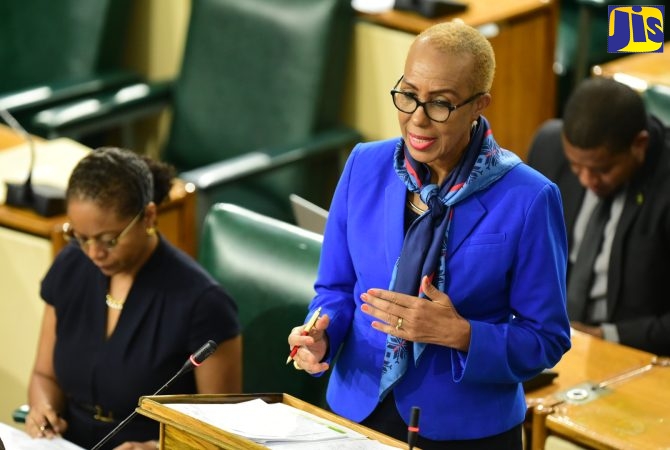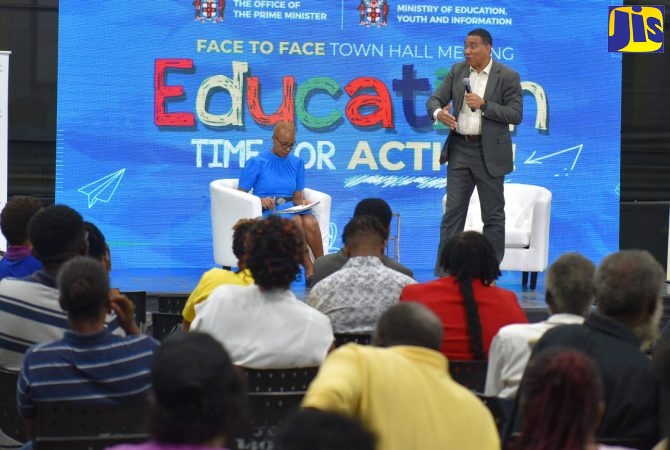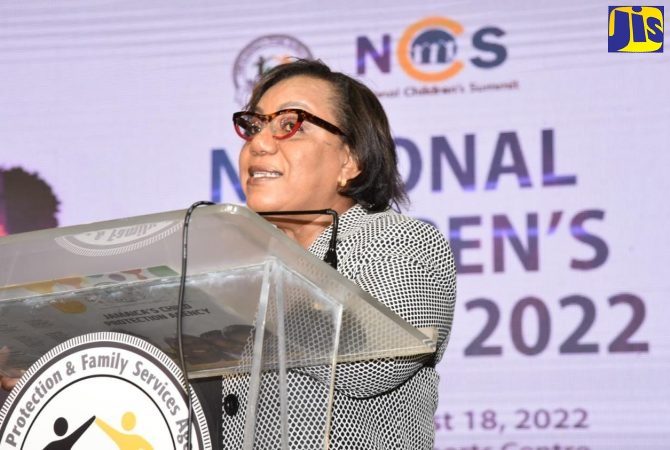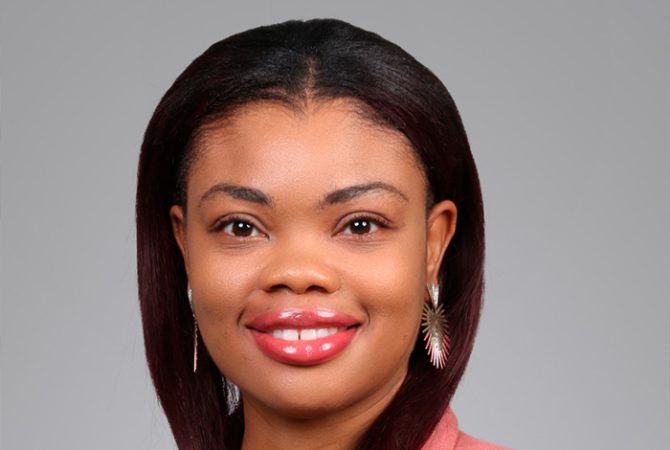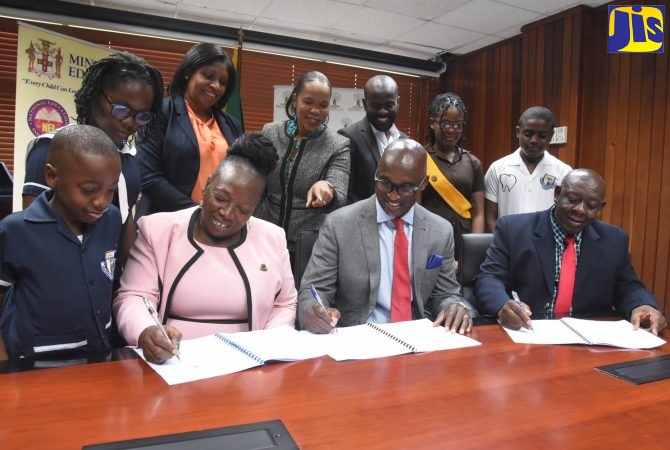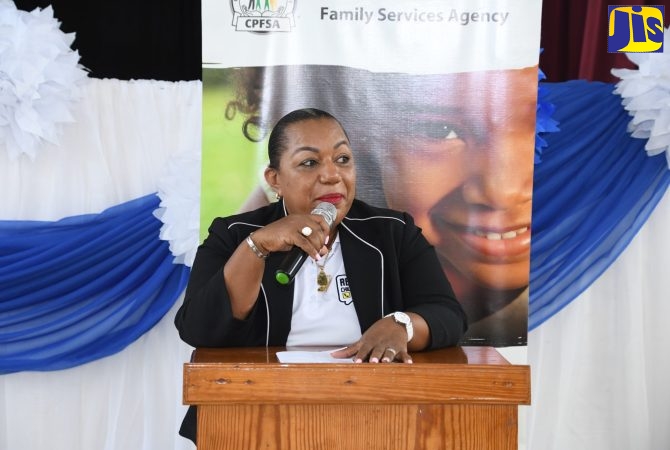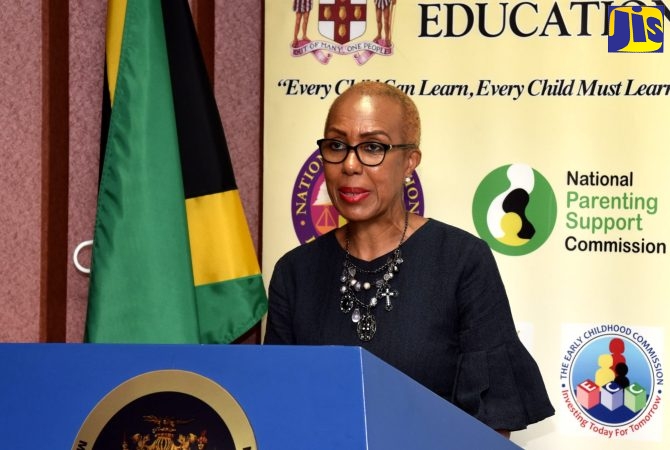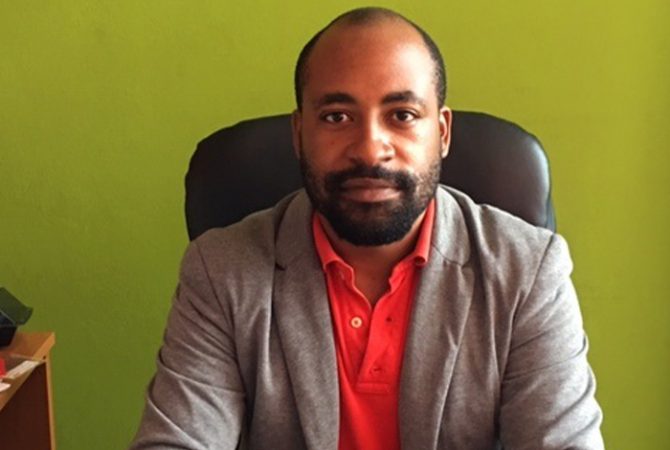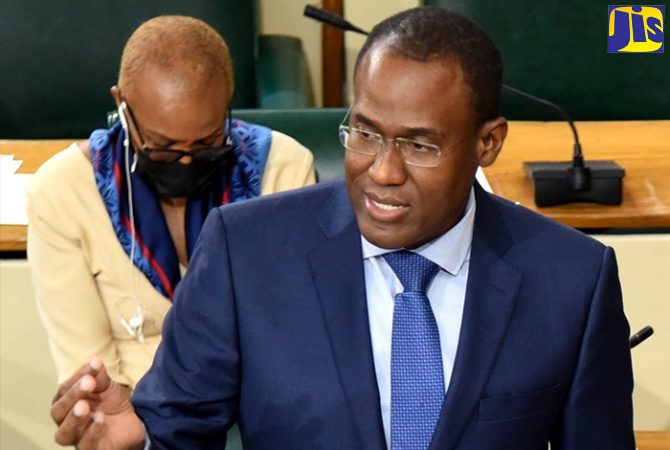The Ministry of Education and Youth is to spend $2 billion on textbooks this academic year, of which $1 billion is for primary schools and $1 billion for high schools.
Portfolio Minister, Hon. Fayval Williams, made the disclosure during the sitting of the House of Representatives on September 6.
“I am particularly pleased of the greater investment in textbooks at the high-school level. Prior to this last year, we were only able to invest $200 million at the high-school level,” Mrs. Williams said.
Textbooks will be available in the usual hard copy and e-book format.
She informed that the Ministry has worked with the principals in the schools to determine the mix of text versus e-book format.
“Distributions have begun and will continue to the end of September. For the e-books, the student will only need to download the book once and will have it on their device for the entire year,” Mrs. Williams said.
Regarding dress and grooming, the Minister said an initial consultation session with principals has been held about the vexed issue of dress and grooming in schools.
“We implore our parents to ensure their children obey the school rules. If our parents desire a change in a school rule regarding dress and grooming, these changes are done by a standard process,” Mrs. Williams said.
“I would implore our parents to attend Parent-Teacher Association (PTA) [meetings] where you can put the particular issue you have with the school rules on the table. Rules and regulations are set by a standard process,” she added.
Mrs. Williams said a parent cannot just say, nothing is wrong with sending his or her child to school in tight pants, when the school rules specifically describe the pants that should be worn.
“School rules are about discipline in school. School rules are about preparation for living in the wider society in which we have to co-exist with each other. There are rules everywhere in society that all of us have to obey. We must teach our children in our schools to obey the school rules,” she emphasised.
“If you believe the school rule needs to be changed, engage the process. Do not lock the school gate, do not bad up the teacher or principal. Engage the process. If the school says no pink hair, do not send your child with pink hair. Obey the school rules,” the Minister urged.


